October 16, 2003
Kabul Letter Number Three
August 14, 2003
Dear Thomas,
I hope all is well, and that the summer passes sweetly. I have just come from my first Dari (Afghan Persian) lesson with a new teacher, an older gentleman who happens to be my friend Razoul’s uncle, and who was recommended to me as knowing all you need to know about Dari. Unfortunately he knows almost nothing about English, which makes the lessons a little difficult at this early stage. He also has six fingers on his right hand—another thumb, equipped with a nail, emerges from the side of his proper thumb—and I find it difficult to avoid staring at it too fixedly during the lesson. I have read about such things before—Anne Boleyn, Henry VIII’s second wife, for whom he rejected Rome, is said to have been similarly afflicted (yet he embarked on the Reformation for the sake of her beauty) and this was used as proof of her witch-hood when he tired of her and decided to get rid of her—but I have never seen it before. I guess in the West we get cosmetic operations in early infancy so our employment prospects will not be affected. In fact, I think it is precisely because he has six fingers that makes me want to keep him, even though he is actually not a very good teacher.
So much for language. Now transport. I am enjoying my excellent new Indian bicycle, manufactured by HERO of Bombay, which gives me new freedoms around Kabul. Afghan drivers are particularly erratic and wilful, however, and one has to stay alert. You often see an Afghan transporting his whole family across the city on one bicycle (one child on the crossbar, wife in burka and child on the back) so I can justify risking only myself. Women, of course, never ride bicycles, and if a western woman were to do so, she’d be greeted with much mirth from the locals, at seeing someone lose sight of themselves so grossly.
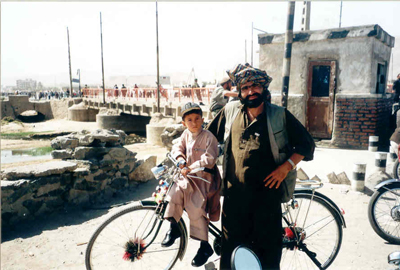
Yesterday I went to the tailors to be measured for my ‘perantonbon’, the long cotton shirt and baggy trousers worn by most Afghans and Indians. In fact I had to go to two tailors, one for the clothes, and one for the decorative embroidery around the collar which is distinctively Afghan and costs more than the rest put together. The tailor shops had a number of 12-year old boys working in them, which no doubt should cause outrage, but I’m afraid I didn’t feel it. At least they are doing something useful. They will have a trade and won’t spend their adolescence working out their particular ‘thang’. I don’t think Afghans really have adolescence: they are children and then they are men—and very soon after that they are fathers. For us, of course, adolescence lasts about thirty years. I’ve decided to get the perantonbon in protest against the unspoken assumption (of Afghans as well as others) that western clothes are where it’s at; certainly anyone wishing to work in a Ministry or top company would be expected to wear western clothes. One of the things I most like about this place is that most people don't dress like westerners, so I am going to teach in their dress as well, even at the awful United Nations compound, about which more later. Of course, an ageing Englishman in a perantonbon will be a very foolish sight, but I am prepared to offer that up as my own personal sacrifice. I also think they look wonderful. The turban is next.
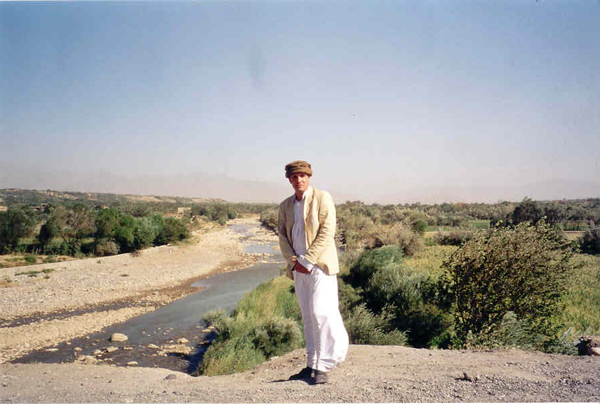
I am increasingly sceptical about the whole western presence here in Kabul. There are a lot of armoured cars with German soldiers in sunglasses trundling through the city—though I think they really do stop Afghans killing other Afghans, which is probably a good thing. It is more that the repulsiveness of so many of our western ways stands out in much starker relief here. Yesterday I had to go to the ‘Supreme’ supermarket for booze, an out of town western supermarket next to the British base, with ancient bare mountains all around. A line of black four-wheel-drive vehicles stood outside, containing westerners eager to stock up on life’s little treats, guarded by two Dutch soldiers in a miniature tank, as impoverished Afghans wandered past. A sign said Supermarket: Weapon Unloading Station—they don’t have those in Oxford. I had Razoul with me, who is rather devout, and I was very embarrassed, nay humiliated, to spend $100 on alcohol when that is more than his monthly wage. I apologised to him afterwards, but I think they just think that the rich and profligate white man is as inevitable as dust in summer. In fact I have managed to live quite a frugal life here, as I am very conscious of the great poverty all around us, and I haven’t smoked a cigarette since I arrived, which has been strangely easy. What does that say about my addiction?
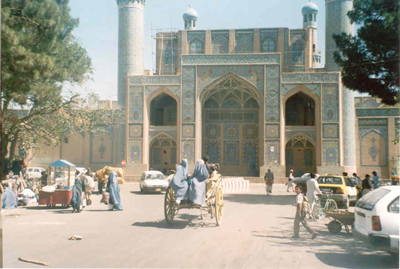
The worst thing, however, has been the United Nations. I teach a middle-aged Italian woman from Rome called Carla, who is actually in charge of prison reform for Afghanistan. The U.N. has given different countries different areas in their great ‘development drive’, and Italy has been given ‘The Law’. This is like giving Greece ‘Road Safety’. Carla is actually a prison governor in Italy, so she has a tough outer shell, but she is also deeply paranoid and full of complexes, and has taken to crying in my lessons because ‘the others’ are out to undermine her and the Afghans don’t want a woman in her position. This could have been foreseen. She also has to conduct all her business in complex English, which she is years away from mastering—she talks like Chico Marx—and she shows me e-mails she has sent to UN headquarters that are frankly incomprehensible. If she had a real sense of honour she would recognise that she is not competent to do this sensitive job in a country which is in deep need of real help; but she most likely earns more than $150,000 a year, so I expect she will stay the course. I teach her in the U.N. Club, where waiters with trays of cocktails swish about by the swimming pool, an awful atmosphere of people with too much money checking each other out. In the context of Afghanistan I find it particularly depressing, and always leave feeling tainted. Apparently, the U.N. is known for its vacuum-sealed money-driven presence wherever it intervenes around the world. But of course there must be good souls amongst them. The strange thing is that in this country that has just gone through twenty-five years of bloody revolution, occupation and civil war, it is the European who is the most neurotic and unstable of my students.
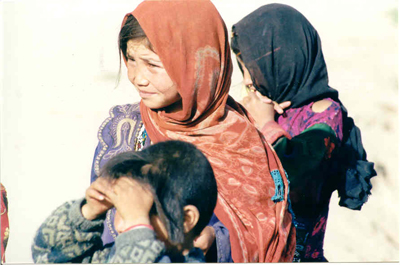
My class of Afghan architects is something quite different. They are kind, intelligent, ironic, aware, sensitive and comic. I like them very much, and sometimes find their palpable goodness very moving. On top of this I often arrive to find them doing their prayers in the office before class, for we start at 5 o’clock. This devotion is accompanied by no trace of fundamentalism, nor do I feel like I’m being judged, although I suppose their adherence to their faith is unquestioning. There is also something about the Persian physical type that I like very much: with their piercing hawk-like faces, each of them looks like a prophet.
On Tuesday we went to the open-air cinema at the French cultural centre, a regular meeting place for Kabul ex-patriots. The air was thick once again with that urgent need to present one’s own special and unique individuality to the crowd, which is so absent from Afghan society. It seemed fairly absent from Greece too, when I first went there. The film was called ‘Arizona Dream’ with Johnny Depp, Faye Dunaway and Jerry Lewis. It was a sort of crazy film that was neither clever nor funny, except for some wry spoofs on older movies. I found myself watching it with what I imagine was an Afghan eye, and found it really very offensive and full of hollow arrogance, full of assumptions that I don’t share at all. I suppose it wasn’t much of a film, but it only reinforced my ever-growing sense of our cinema as an agent of a darkness. I couldn’t wait for it to finish and go home.
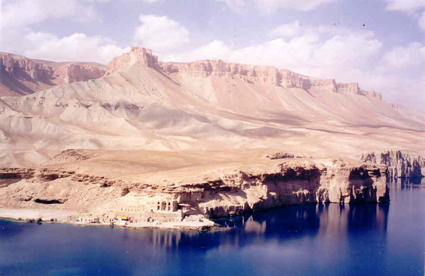
I’ll soon be talking myself into joining al-Qa'eda, so I guess I should stop now. In the future, I will try harder to write about the many good and positive things about being here. I am constantly aware of those great dry ancient mountains out there, harbouring an unchanged way of life. I hope I will get a chance to go before too long. But of course the Taliban are still out there too, and they don’t like us too much. Hence the turban.
Lots of love,
Andrew
Posted by djsmall at October 16, 2003 12:40 AM